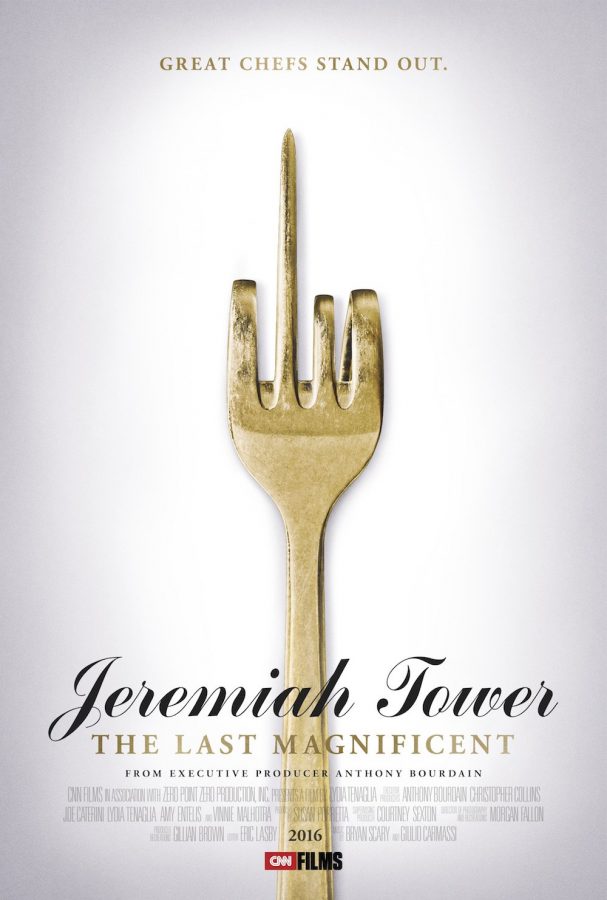Tribeca 2016: Anthony Bourdain’s Doc Brings an Eccentric Cook Back Into the Light
“Jeremiah Tower: The Last Magnificent” documents the life of the famously controversial American cook.
April 20, 2016
“Jeremiah Tower: The Last Magnificent” is a grandiose and absurd — but fitting — title. The new documentary, which had its premiere at the Tribeca Film Festival this past weekend, charts the life and times of eccentric chef Jeremiah Tower, whose contributions to gastronomy are immense and widely underappreciated. Following the premiere, CBS’s Charlie Rose spoke with executive producers Anthony Bourdain and Lydia Tenaglia — who also served as director — as well as Tower himself.
Said to be the originator of the farm to table dining model, at first in celebrity chefdom and the pioneer of an American food revolution, Tower’s character is justification enough to believe such bold claims. He’s agedly handsome, well-dressed and speaks with a proper, accentuated voice that is so upright that dry-cleaning should hang on it. His charm is potent, underscoring the documentary by way of his narration and restaged life events, constructing an argument that Tower is in fact, as absurd as the title sounds.
While the subject is fascinating, its vehicle is dramatically underwhelming. The documentary itself is limited to alternations between one-on-ones with Tower, which are abundantly joyful, and belaboring talking head interviews, where famed restaurateurs and chefs blend into one another as unadulterated praise is heaped upon Mr. Magnificent. The reenactments of Tower’s life are a necessary evil, helping to illustrate what would otherwise just be audio retelling, though never really escaping clunky awkwardness.
Fortunately, there is satisfaction in the telling of Tower’s youth, which explains his later obsession with decadence and perfection. Raised in a jet setting lifestyle by neglectful parents (Tower describes his father as a prick and his mother as an alcoholic), the future chef found sustenance in pristine, first class accommodations, citing time alone in luxury hotels as a life highlight, left to eat, see and do whatever he pleased as a prepubescent.
The luxurious life is one he maintains, through Chez Panisse, where Tower helped to make into a highly regarded culinary institution, and Stars, his own, indulgent restaurant in the 1980s, which introduced the open kitchen concept in a serious dining experience. The documentary not-so-subtly implies that the decadence is meant to fill a hole left in Tower, though it is an effective point.
Curiously, no foundation is laid to explain the man’s excellent skills in the kitchen, skipping over seemingly crucial information, leaving viewers to assume his talent was magically innate. Likewise, the finale is horribly mishandled, jumping between Tower’s recent failed stint at Tavern on the Green and an incongruous explanation for the fall of Stars.
“Tavern happened as a post-thought,” Tenaglia said during the Q&A, as the chef’s hiring at the NYC establishment was a surprise to even the director, who was planning on finalizing the doc at the time.
“Jeremiah’s world is about creating magnificence,” Anthony Bourdain said. “That’s not Tavern on the Green. Tavern is where you bring your grandmother because you know you won’t see your friends.”
Jokes and excuses aside, the film and the talk had a perverse sense of restoring a forgotten figure. Rose asked Tower if, after Stars closed, he wanted to disappear.
“I did my best to be forgotten,” Tower said. “Thanks to Tony and Lydia, I was not.”
Email Ethan Sapienza at [email protected].
















































































































































